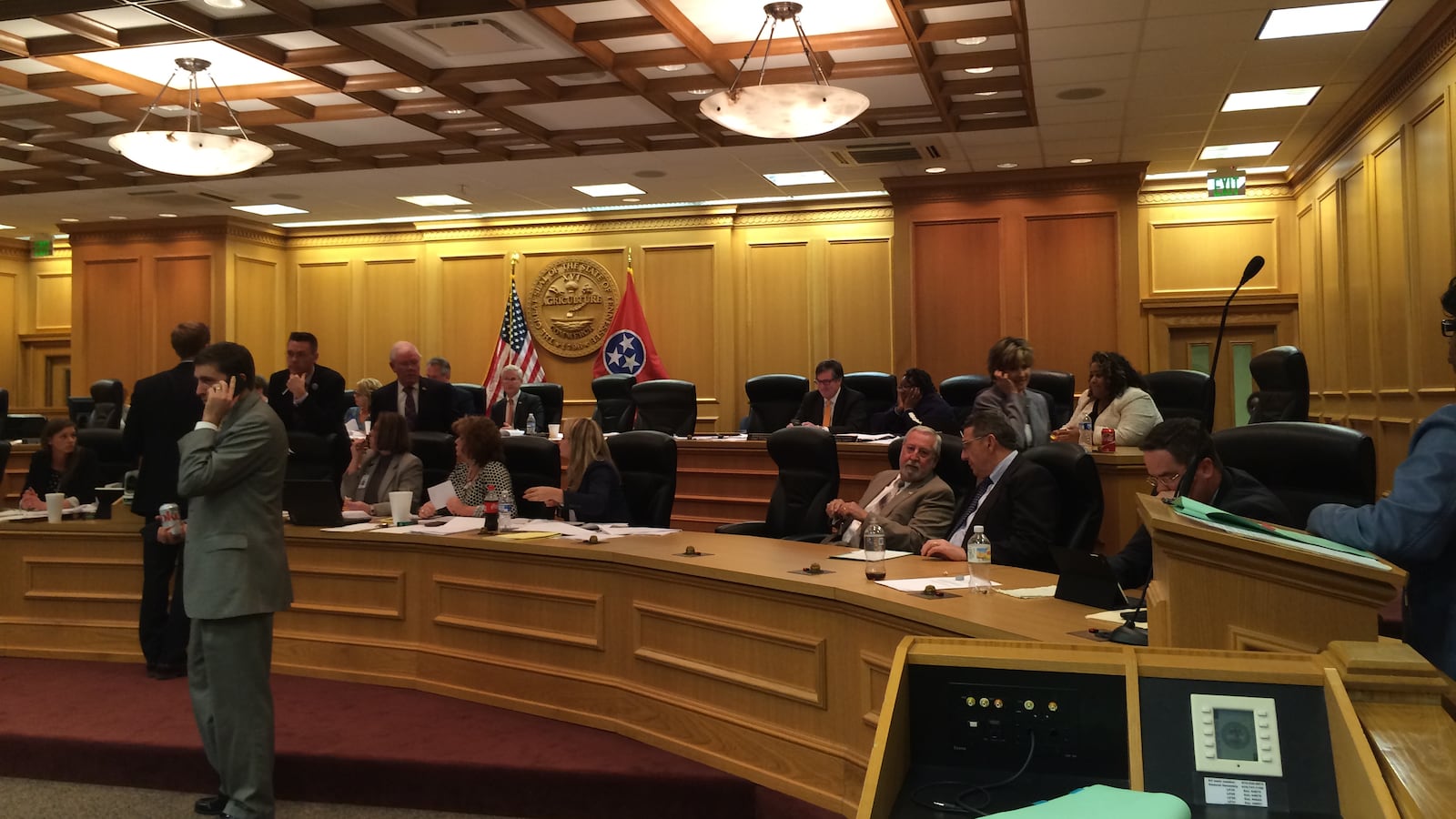For the third time in five years, a Tennessee House legislative panel has blocked a bill that would have provided vouchers to low-income students to pay for private school tuition.
Rep. Bill Dunn (R-Knoxville) said he didn’t have the necessary support for passage and took the bill off notice on Tuesday in the House Finance Subcommittee until the 2016 session.
The House sponsor, Dunn told reporters later that voucher opponents on the 12-person panel largely were influenced by leaders of public school systems in their districts, which oppose the program. If the bill had passed, vouchers could siphon off students and per-pupil state funding from local districts, although it is not certain how many students or how much money.
“I just think we need to take the time to talk to these school systems and explain the dire straits these children are in,” Dunn said after the vote. He said that the policy would not impact most parts of Tennessee, “but it will make all the difference for these students.”
The stalled voucher proposal quickly prompted cheers from cash-strapped school districts and jeers from school choice advocates.
“I would just say that the legislators perhaps finally realized that they can only take so many public dollars out of the school system until they reach a breaking point,” said Shelby County Schools lobbyist Tony Thompson, adding that the financially beleaguered district — Tennessee’s largest public school system — already is near that point.
Voucher proponents quickly predicted that the bill will be back next year.
“While momentum may have stalled in this particular committee, we feel confident that support continues to grow each year, evidenced by the co-sponsorship of more than one-third of all House members on this year’s bill,” said Brent Easley, the Tennessee director for the voucher advocacy organization Students First.
Samantha Bates of the Professional Education Association said members of the statewide teachers group are relieved that the program was fended off again, but not overly so. “We know that the concept of vouchers is far from dead in Tennessee,” she wrote in an email.
Other voucher opponents were more celebratory.
“Today marks a great victory for public education in Tennessee,” said Lyn Hoyt, president of advocacy organization Tennesseans for Reclaiming Educational Excellence. “Despite nearly a million dollars being poured into the campaign coffers of legislators by Washington, D.C.-based groups intent on decimating public education in our state, our lawmakers stood up and said ‘enough is enough.'”
Had the bill passed, private school vouchers would have been available to students zoned for the bottom 5 percent of Tennessee public schools, and would have been valued up to $5,000 per student. The number of vouchers would have increased from 5,000 during the program’s first year to 20,000 two years later.
The program would have cost the state $185,000, according to the bill’s fiscal note. However, the state did not estimate the potential costs to local districts.
The bill easily passed earlier this month in the Senate, and House members had seemed to be warming on the idea, with about a third of the chamber’s members signing on as co-sponsors. Legislative leaders were optimistic that, five years after the idea began to gain traction in the Senate, vouchers finally would become part of Tennessee’s educational offerings.
But while some representatives opposed vouchers because of their cost to public schools, others thought the proposed program wasn’t expansive enough. The Tennessean reported that Finance Subcommittee Chairman Mike Harrison (R-Rogersville) revoked his support of the measure because he thought more students should be eligible. Similar concerns about the narrowness of the bill were aired in the Senate as well.
The Tennessee legislature has become a focus of national pro-voucher special interest groups, including Americans for Prosperity, a conservative political network backed by industrialist billionaire brothers Charles and David Koch.

Supporters have said the bill is a natural progression of Tennessee’s drive to expand school choice and will make all schools better by increasing competition. They believe that children should have the opportunity to go to better schools—right away—including private schools via opportunity scholarships. Critics oppose vouchers because they are costly, have a mixed track record of improving student achievement, and distract policymakers from investments that would bring lasting educational improvements to all public schools.
How vouchers might have impacted Tennessee’s educational landscape is unclear. Results of voucher programs in other states have been mixed, and many private schools — many of which charge tuition that far exceeds the proposed voucher amount — have said they aren’t interested in accepting vouchers. In Memphis, however, at least one network of Catholic schools was eager for the opportunity to serve more low-income students.
Contact Grace Tatter at gtatter@chalkbeat.org.
Follow us on Twitter: @GraceTatter, @chalkbeattn.
Like us on Facebook.
Sign up for our newsletter for regular updates on Tennessee education news.

